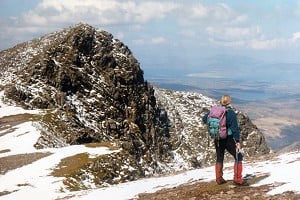
In February the owners of Dorset beauty spot Durdle Door seemed to have singled out particular groups for 'degrading' the area during summer 2020, as hordes of people newly released from the first lockdown flocked to the countryside, and litter and antisocial behaviour became a national issue.
The Lulworth Estate's letter to the Government Petitions Committee implied that a "younger and more geographically and culturally diverse cohort" had left piles of rubbish and human faeces amid scenes of crowding aired widely on the media. The apparent finger pointing at specific targets drew widespread criticism for crude caricaturing, though the estate say their words were misrepresented (see this forum post).
Whatever the intention here, a narrative of cultural mismatch between urban and rural Britain does nothing to encourage people of all backgrounds to regard the countryside as a place equally for them.
However the Lulworth letter's assertion that those responsible (whoever they were) lacked knowledge of leave no trace principles was self evidently true. "As a nation we are constantly encouraged by the government to take advantage of the beneficial effect nature has on us" said the Estate in a statement, "but they seem to have forgotten to remind us of our basic Countryside manners."
Irrespective of anyone's background, it is often asked how people with limited access to the countryside, and little personal experience of the outdoors, might be expected to treat nature with respect. Education cannot take place without inclusion, after all.
At present, access to the countryside is not being enjoyed equally across society. Evidence suggests, for example, that people from Black and other minority communities are far less likely than their White compatriots to visit the outdoors.
A survey for Sport England conducted in October 2019, based on data gathered from 180,000 respondents, recorded the highest ever levels of physical activity. Walking for leisure or travel remains the most popular activity, and - at least until the last year of lockdowns - the numbers had been steadily increasing.
But when it comes to the outdoors the level of participation is not uniform across the population of England (and anecdotally the same is true for Scotland, Wales and Northern Ireland). The survey found that among the population of England, by ethnicity, activity levels are lowest for Asian people (excluding those of Chinese background), at 56%, and among Black adults (57%).
For many people, particularly those living in more urban communities, simply reaching the countryside at all can be a struggle. According to government figures, Black people are twice as likely as White people to live in a household with no access to motorised transport, for example.
More than one in ten of us may be Black, Asian or of a minority ethnic background, but this significant proportion of the UK population accounts for only around 1% of people who visit National Parks. Sport England also found that while more than 16% of white people regularly participate in mountain walking, hiking and mountaineering, just 2.6% of Black people and less than 4% of South Asian background do so.
In the survey, people who are less affluent were found to be the least likely to be active (54%), in contrast to the most well-off, who are 72% active. Economic and health inequalities create a complex set of circumstances, exacerbating other barriers to participation.
Unequal participation is clearly a big problem, and if outdoor-goers care about encouraging others to share our love for the countryside and enjoy the rewards of walking and climbing, then it would seem natural to want to see people of all backgrounds getting out there. But the woods, hills and crags still seem to be a disproportionately 'white' space.
While government, governing bodies and organisations such as National Parks have acknowledged the issue of inequality in the outdoors, and are working to help redress it, some of the most exciting steps towards greater participation are being taken at a grassroots level, as new community groups take on the challenge.
We caught up with activist Cherelle Harding to find out more about her work, the barriers she thinks are holding people back, and what we might all do to help.
Steppers UK
Based in Coventry, youth worker Cherelle Harding, 31, runs Steppers UK, a community group set up to help people from cities reconnect with nature, and which aims to widen participation in the outdoors among people of all backgrounds. She also works as a regional leader for Black Girls Hike UK, a community interest organisation led by and for Black women.
"I'm a youth worker by day, adventurer by nature!" Cherelle jokes. And now she has taken on the challenge of helping people from under-represented demographics to feel comfortable in the countryside, and to look at the outdoors as a space for all. Despite an increasing awareness that there's a problem here, the task still looks like an uphill struggle.
UKH: How did you first get into hiking, and the outdoors?
Cherelle: My first experience of the outdoors was during a school residential trip where I visited Plas Doly Moch in Wales. When I was around 23, I had the opportunity to visit the same location and that's when I climbed my first mountain. This is where I remember having my first 'wow' moment, but I think the biggest influence on me connecting with the outdoors was actually listening to reggae music. Through reggae I learned a lot about Rastafarianism which teaches to live in harmony with the environment and to look after and appreciate nature. It opened a level of consciousness in me and inspired me to get outdoors more.
How did you get involved with Black Girls Hike, and how did that led to you setting up Steppers UK?
I first got involved with BGH after posting on Instagram that I didn't know any other black people that enjoyed hiking. To my surprise, someone sent me a link to BGH and I remember being so happy! I attended a few walks and soon become a group leader in the Midlands. BGH really opened my eyes to the need of creating spaces for people to enjoy the outdoors in environments that are comfortable and familiar. Through BGH I was able to gain experience in leading groups and learn a bit more about the outdoor industry in general.
I first got involved after posting on Instagram that I didn't know any other black people that enjoyed hiking. To my surprise, someone sent me a link to BGH and I remember being so happy!
As well as BGH, I would go on regular walks with friends and we would often be the only 'people of colour' wherever we would go. I've always recognised that being black or brown, you are underrepresented outdoors and I wanted to find other avenues to promote diversity outdoors specifically encouraging more people from Black & Asian backgrounds. Fast forward to 2020, I launched Steppers.
What do you hope to achieve through Steppers, how does the organisation work, and how do you go about reaching people?
Steppers hopes to encourage people to reconnect with nature & provide them with the necessary skills and tools to navigate the outdoors, so they can confidently make walking/hiking a recreational part of their life and also just experience the profound effects of being in nature. Living in the city, often we life such fast paced life styles, so I think it's important to find ways to detach and clear your mind. Walking can provide that therapy.
I believe you can be inspired to explore the outdoors in many ways (For example, music was an inspiration for me) So at Steppers, our approach is to be creative in the pathways that encourage people to access nature.
We are based in the Midlands but lead walks regionally. You can find and more info about walks via our social media handle @steppers_UK
What sort of activities do you get up to with members?
At the moment we are walking but we hope to explore other outdoor activities as well. I'd really love to get the group doing other activities such as cycling, surfing, rock climbing and also some wildlife & bushcraft activities.
"Joining steppers has been the highlight of my lockdown experience.
"I was so pleased when Cherelle mentioned that she wanted to create a way for BAME people to have more access to the outdoors and UK countryside. It's a great initiative and a much needed one. It's a rarity to see other Asian people walking in the countryside.
"Steppers inspired me to create my own Instagram page @Jungleejoggers and share my outdoor experiences. Since then, I have connected with many other BAME people and hijabi sisters around the UK who have an interest in the outdoors.
"For us it's quite daunting going out alone, we're often scared of facing racism. With Steppers I feel comfortable exploring the outdoors with a group of like minded people.
"Walking with Steppers is always fun, full of love and laughter. Good views and good vibes!
"I love how at the end of each walk, we always reflect, we take a few moments to talk about our learnings... it goes like..."so what have you learnt today?" "Hmm...I love the outdoors more than I did before, I've learnt not to be loud in a field full of horses and I've learnt I need better boots" There's always something new to learn on these walks!"
- Tayyibah Mota, Steppers Participant
It's a generalisation, but the countryside – particularly far from towns – still seems to be a disproportionately mono-cultural space, and it's comparatively rare to see many people of Black or Asian backgrounds up on the hills. Fundamentally this means that so many people are missing out on the positive benefits of the outdoors and nature. Shouldn't we all care about that, and want to help redress the imbalance?
We should care that not everyone is accessing and experiencing the benefiting from these wonderful spaces. There also is a lot of work to be done to diversify the outdoor industry and increase representation throughout.
Would you say the question of participation in the outdoors has become more prominent recently, and might this be linked to the rise of the Black Lives Matter movement more generally?
Yes, the rise of BLM last year put a renewed focus on lack of diversity, institutional racism and how it trickles down into society and its structures.
It helps to have someone that looks like you in a prominent position because you can relate and visualise yourself doing it. It can make it more achievable
Looked at from the outside, it seems as if for decades Black and Asian people in general have not felt able to see the countryside as a place that's just as much for them as for anyone else. Do you think that's true?
The countryside can be a intimidating environment if you are not familiar with it. I do feel there has been a disconnect for Black and Asian people within the diaspora. Many of us come from or have heritage in countries that are abundant in nature and very much part of everyday life (for example my family are from Jamaica and Barbados). When I think of us in the UK however, our lives have been tailored around city life. It's what a lot of us know and are familiar with.
I feel as though there is this idea of what type of person you have to be to enjoy the outdoors. Often this is portrayed as White, Male, upper/middle class.
This is false and this narrative needs to change from both the industry and within our communities.
Are you happy with the rate of progress being made at a national level, or do you think this is something that ought to be addressed as more of a priority by policy makers, organisations such as National Parks, and the outdoor and tourist industries?
I think there is still a long way to go and much more work to be done, it's long term commitment.
Much like football and its racism problem, the outdoors doesn't operate in a vacuum but reflects society as a whole: How far have we still to go before we reach real parity, equal access, opportunities and representation for all in the outdoors? Are we anywhere near some kind of watershed moment?
I don't think we are near a watershed moment. It's not just about having Black faces in white spaces, it's about changing the system throughout. Change needs to be systematic not just symbolic. There's a lot of momentum specifically within diversity outdoors at the moment, which is great. I'm hopeful this will continue and have a domino effect so we can get to the point where all communities feel like the outdoors is also for them.
What role can groups and community organisations such as Steppers play in helping to bring people to the countryside and break down barriers?
We are able to work with our communities and the greater outdoor industries and support in bridging the gap. We provide spaces that are familiar in an unfamiliar environment.
For people to feel that the outdoors is a space for them, in what way is it helpful to see positive role models in the media and on social media, prominent individuals like yourself and Rhiane of Black Girls Hike?
Representation is extremely important. It helps to have someone that looks like you in positions because you can relate and visualise yourself doing it. It can make it more achievable.
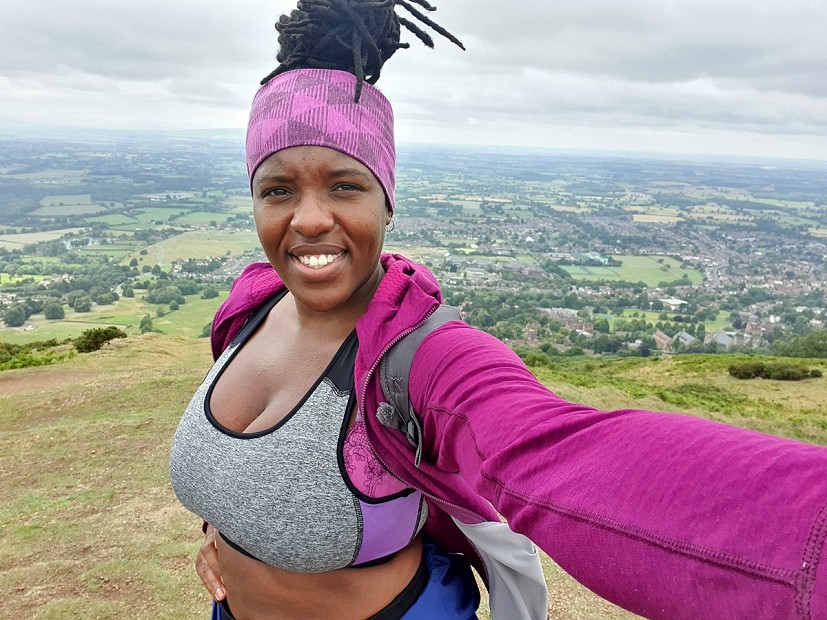
Are there practical issues surrounding things like work, family life and living in the city, that may make it physically harder for some to get out into the countryside?
I think there are many barriers. Of course we are not a monolith, different people have different circumstances. There are general barriers such as lack of education of the outdoors and distance/ proximity to locations. Transport also is not great to the countryside.
Then there are more complex and historical barriers such as that exist for people for Black, Asian and Minority Communities, such as racism and for some a fear of travelling to spaces that are unfamiliar and unsafe.
How about economic barriers: perhaps some of those living in less affluent areas simply have less time, headspace and spare cash to spend on equipping themselves for the outdoors and travelling out to the countryside: Do you recognise that as a problem for some people?
I do think this is a factor for some yes. For those with economic barriers, it's just not a priority for people to use their time and money on buying outdoor equipment and travelling miles to the Lake district for example, but there are plenty of people from Black, Asian & inner city backgrounds that have the money, time and ability to access the outdoors yet many still aren't. We have to look at that also.
Can there also be a skills gap? If you don't know how to navigate etc then are you going to feel less confident about going out? But in that case how are you ever going to learn? How can we best break that circle, and bridge the skills gap? Would you say that groups like BGH and Steppers are a particularly effective route to gaining skills and empowering people?
Definitely. I first learnt my OS maps skills from attending a BGH map skills weekend. I'm still learning but It has made me more confident navigating spaces. The countryside can be daunting if you don't know where you are going.
I hope to have some map skills session for Steppers, as well working with schools helping young people develop these skills further. I think by implementing them into city life it becomes easily transferable when going into rural spaces.
How have Steppers and BGH been received in the outdoor industry? Are we moving from tick boxing to genuine engagement?
There have been some really supportive people and organisations. I'm still really new when it comes the outdoors so it's been helpful having people to guide and support.
I'm sure there are many tickboxers out there, Time is usually the biggest teller of who is really for change.
What about in society more generally – have you experienced any hostility or negative comments about the work that you do, and if so how do you deal with that?
There have been some yes, but honestly, we just try not to focus on that now. It can be so draining. We are here to support our communities and try not to waste energy on anything that distracts from that.
What's next for Steppers?
We are currently on a mission to visit all 46 Areas of Outstanding Natural Beauty (AONB's). We've only done four so far, so I'm really excited for the many adventures ahead.
We will be starting a few projects that will look at supporting young people. We really want to provide opportunities for young people to explore the great outdoors and use nature as therapy. And I'm also looking forward to us trying other activities.
You can find out more about Steppers UK here:
Donations can be made to Steppers via gofundme
- INTERVIEW: Exmoor Coast Traverse - England's Best Kept Mountaineering Secret 10 Apr
- REVIEW: Rab Muon 50L Pack 9 Apr
- REVIEW: Boreal Saurus 2.0 22 Mar
- REVIEW: The Cairngorms & North-East Scotland 1 Mar
- REVIEW: Mountain Equipment Switch Pro Hooded Jacket and Switch Trousers 19 Feb
- Classic Winter - East Ridge of Beinn a' Chaorainn 12 Feb
- REVIEW: Salewa Ortles Ascent Mid GTX Boots 18 Jan
- REVIEW: Patagonia Super Free Alpine Jacket 7 Jan
- REVIEW: Deuter Fox - A Proper Trekking Pack For Kids 27 Dec, 2023
- My Favourite Map: Lochs, Rocks, and a Bad Bog 27 Nov, 2023



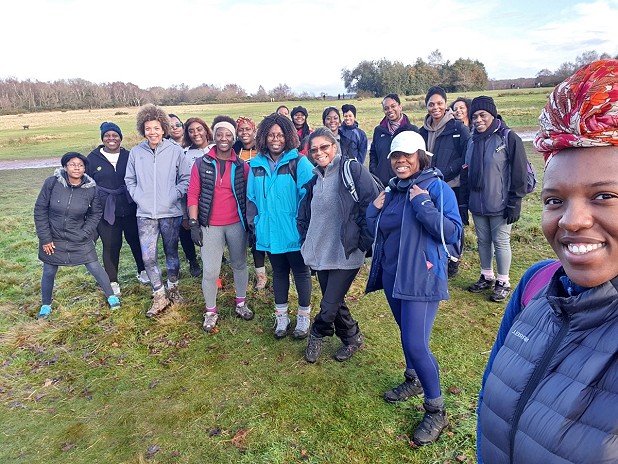
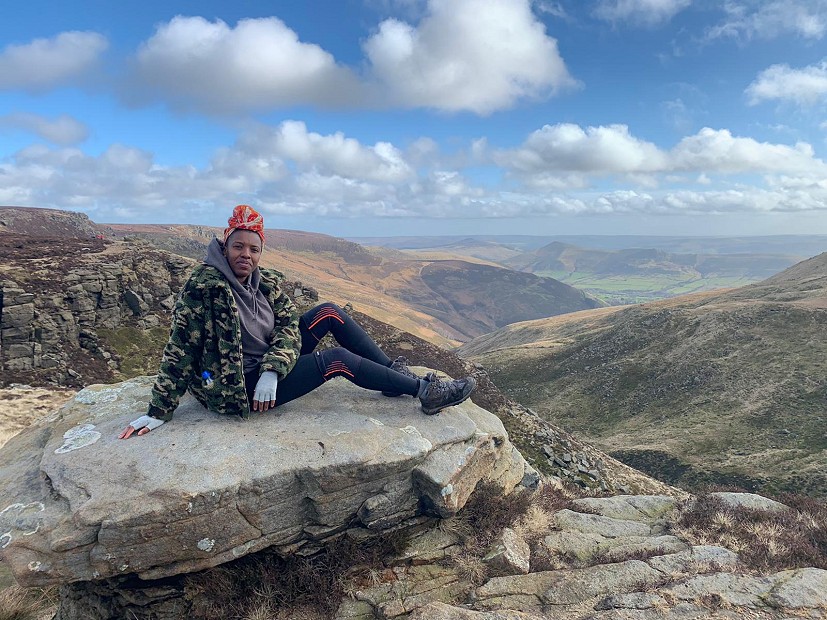
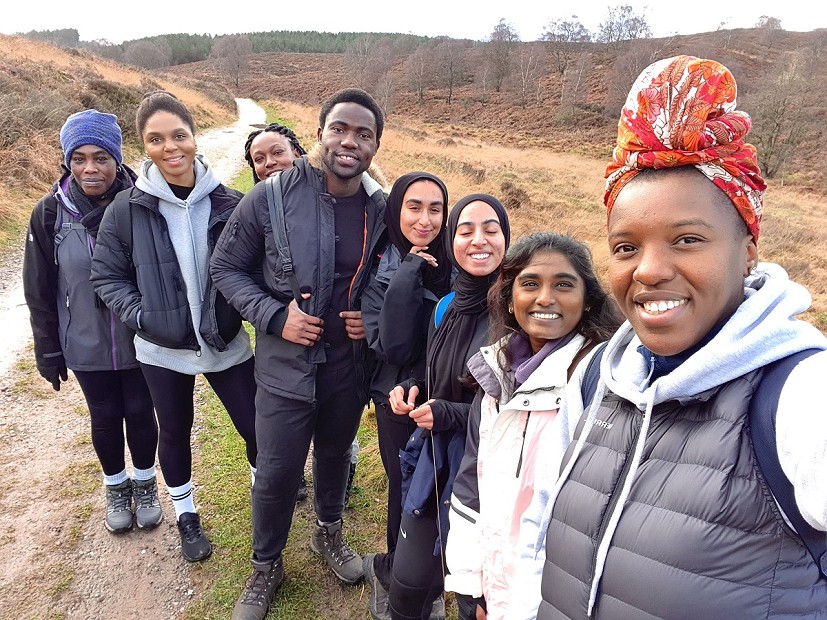
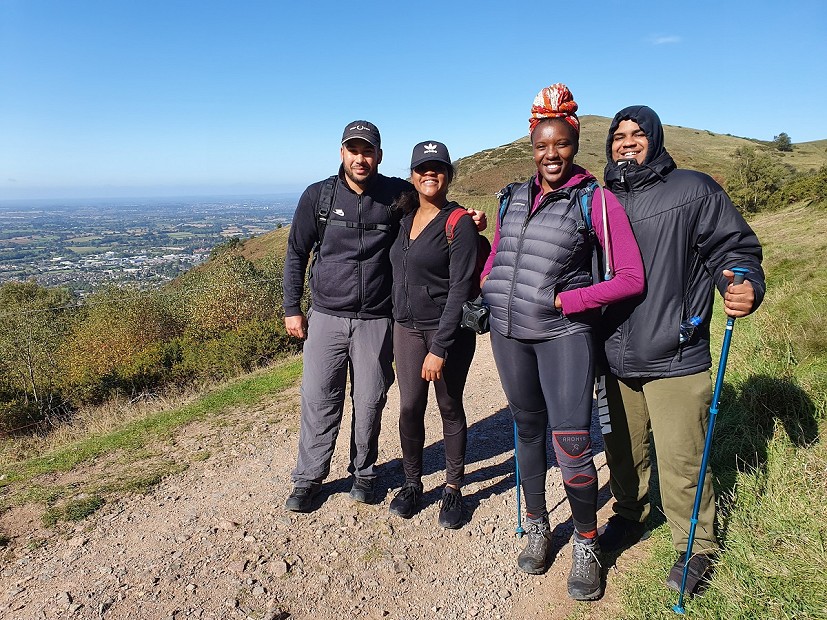
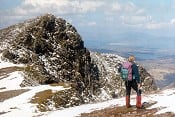


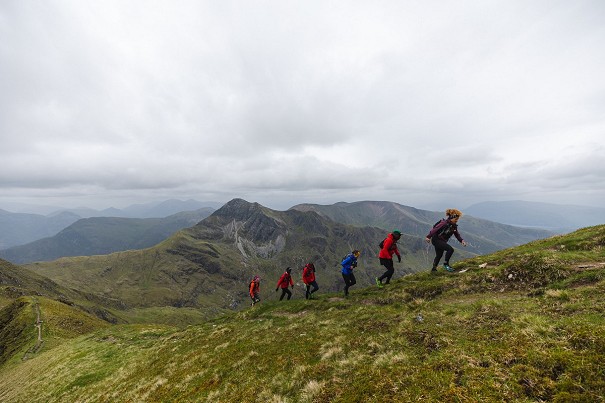
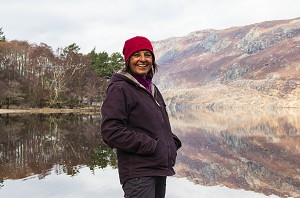
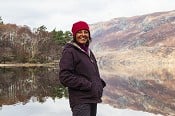
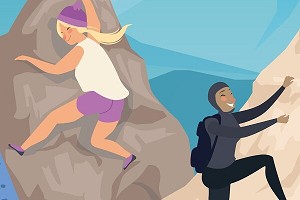
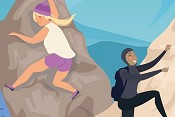
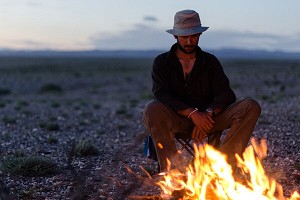
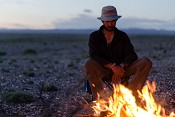
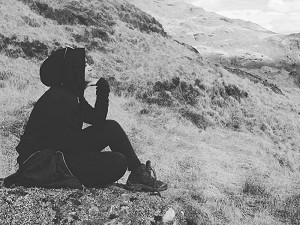
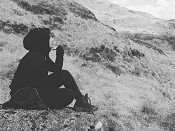
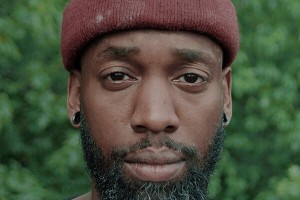
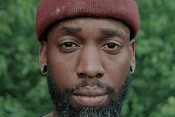
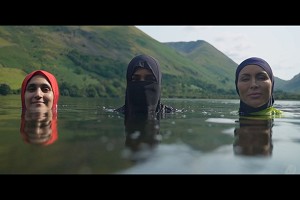
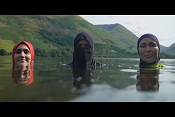
Comments
The outdoors is also a great place for people of all races/sex/religion etc to take a break from the incessant creep of group identity politics into every aspect of our lives.
'Activism' ? 'Changing the system throughout' ? - To me, this type of language isn't synonymous with the outdoor experience.
"Irrespective of anyone's background, it is often asked how people with limited access to the countryside, and little personal experience of the outdoors, might be expected to treat nature with respect. Education cannot take place without inclusion."
-who on Earth "often" asks this question? Leaving piles of rubbish and human faeces isn't a consequence of limited access to the countryside.
It’s great that activism and conversations about race aren’t synonymous with your experiences of accessing the outdoors. Have you considered that this might be because you are fortunate enough that they haven’t ever needed to be and that other people might have different experiences?
You've just written exactly what I wanted to say, which is ultimately a reminder that other perspectives exist, beyond our own. Just because something seems one way to me, doesn't mean it's that way for everyone.
In light of this, a post which ultimately says "who actually thinks like this?" and "to me that isn't relatable" may wish to re-read the article, as they've clearly missed the point.
UKC is jumping on the bandwagon; we are not the USA, where race has devolved into a national obsession and cult with no stone left unturned to try and square the circle of fitting "race" into the reason why everything bad or perceived as bad occurs.
There is and never has been anything stopping anyone from anywhere enjoying the great outdoors of the UK. There is no problem to solve. There will be those that disagree, but they are also the people that are supportive of the idea that we are a systemically racist country (demonstrably wrong) or those that benefit from their victim status by propagating such nasty, divisive, victim generating nonsense.
This statement sums up the wrong headedness: "Unequal participation is clearly a big problem" - Why? Why is this a Big Problem? Maybe, just maybe some cultures are less inclined to want to walk around the often rainy, frequently miserable, grey skies and arduous terrain of the UK's wild places. After all there is nothing stopping them doing it. Heresy! It must be because of exclusion of some kind! When all you have is a hammer, everything looks like a nail.
Arcteryx, Patagonia and Hoka are examples of businesses literally falling over themselves, fawning and prostrating themselves before the wokeists to demonstrate their fealty to this bizarre, clunky, often inhuman and irrational ideology. Mountain Equipment recently did something along similar lines on their instagram and (rightly) got universally slated in the comments. They havent done anything political since then. A smart move, followed by most European companies, as opposed to their American cousins.
I am from a Asian/ UK mixed family. My Asian family members often think I am mad to do what I do outside. They are not racist or in need of "reducating". Its simply not as culturally fitting. So stop the nonsense, get outside - or stay at home if you like - and viva la difference.
I think there are lots of things wrong with the way we discuss inclusion, race and other forms of diversity, not just in the outdoors. Jumping on the bandwagon is always presented as a bad thing, but doing the right thing for cynical reasons is still heading in the right direction.
What I find hard about posts like yours is that every single time someone wants to write about their experience as part of a minority (or as a woman) it gets a very robust pushback, often from people who haven't even read the article. I understand why people sometimes feel like these things are being shoved down their throats, and there are plenty of bad articles on the subject which I don't think help, but the pushback is so strong that the message you're sending is that it's offensive to even ask if someone else's experience is different to your own.
I've been quite shocked when I've asked friends about their experience of racism. So many have had directly racist experiences, a few in the outdoors although the majority elsewhere. It's not simply about this overt othering though, you allude to this in your post.
People experiencing cultural pressures to conform in different ways is a barrier to participation. If your social circle is very involved with your own cultural community that heightens those barriers, while also excluding other opportunities, including simple things like having friends who can introduce you to new experiences, including the outdoors. Having groups who want to reach out (or rather in) to those communities is only broadening people's outlooks, and I don't see why people feel so threatened by that.